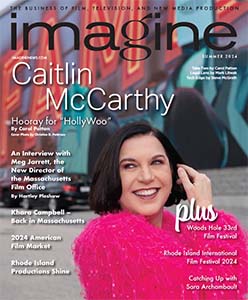“This is the toughest time for the so-called personal film I ever seen in my life.” –Francis Ford Coppola at San Francisco State University, 2009.
Take a look at the top ten grossing films, right now. They are:
1. SNOW WHITE AND THE HUNTSMAN
2. MEN IN BLACK 3
3. MARVEL’S THE AVENGERS
4. THE DICTATOR
5. THE BEST EXOTIC MARIGOLD HOTEL
6. WHAT TO EXPECT WHEN YOU’RE EXPECTING
7. BATTLESHIP
8. CHERNOBYL DIARIES
9. DARK SHADOWS
10. THE HUNGER GAMES
The smallest budget of all of these films, THE BEST EXOTIC MARIGOLD HOTEL, came in at just under ten million dollars to make. With stars willing to commit to back-end deals, this is, by Hollywood standards, a small, independent film that was helped along with distribution and partial financing by Fox Searchlight Films. The Little Movie That Could, a la SLUMDOG MILLIONAIRE.
Take a look at the top ten grossing films, one year ago. I won’t burden you with more statistics. If you are a screenwriter, you are smart enough to know where I’m going. The point here is that there are no micro-budget films to be found, this year or last year, in the top ten, or even the top twenty films of the year.
But you have this burning desire inside of you that just won’t quit. As such, you have chosen this vocation. You don’t live in Hollywood, nor do you have a high powered agent to quickly get your work in front of other agents who represent movie stars.
But you know some people with gear, and cameras, and actors. Some of them have worked on other films, large and small. You have worked on your story for the better part of a year, probably more if you have done your job correctly. Through various sources you have raised what you think is enough money and you have cleared six weeks of your schedule to make a run at it.
What should you keep in mind?
First and foremost, know this. Agents change their tune once there is money on the table. I am not talking about micro budget money, either. Anything under one million dollars would be considered micro-budget. Raising this kind of money, independently, has never been easy in any economy. However, with six figure commitments that are viable, you can get your work before an agent.
Once there is significant funding on the table, the next step is to attach a movie star who is passionate about your story. That is, they must fall in love with your writing. With the following three items in place: A flawless screenplay, a realistic line-item budget completed by an experienced Line Producer and at least two star actors attached. With these elements in place, the Agent can now do what they do best; package your film.
But as the screenwriter of this independent feature, your first and foremost responsibility is to create a story that is satisfying to a wide audience and commercially viable, not loaded up with special effects, expensive stunts and expensive company moves from one obscure location to another. The personal story, the character study, is one of the most difficult stories to render cinematically. Because of this, every nanosecond must be captivating. How does one create a personal story that is commercially viable, yet do-able as an independent film?
At this level of production, fish out of water stories work well. Simon Beaufoy, the writer of SLUMDOG MILLIONAIRE was recently asked what it was like writing it. He said, “You can’t escape the shadow of Dickens, dealing with these extremes within an extraordinary city.” He felt the shadow of Dickens on him the whole time. The tone shift, where you shift from high comedy to moral horror to an exhilarating dance sequence at the end—people think we put that in to give it a commercial, feel-good ending. The truth is that if we left out the dance it would have been a really imperfect picture of the city, because it’s such a part of the city, the instinct of the city. That’s why it had to be in the film. The only question was whether we put it in the middle or the end. So yeah, Dickensian—it’s very, very true. He’s the master storyteller, and you follow his lead in having confidence to slam such extremes next to each other in a film and risking such vast variations of tone. It shouldn’t work—the rule book says you can’t shift tone like that constantly—but it does.”
It is the tonal shifts that give the small film the big muscles that it will need in order to go the distance and make it all the way through the attachment, packaging and development processes. The screenwriter must possess the skill and patience to render these tonal shifts on the page. It is for this reason that the small independent feature is the most difficult film to write. There are no gimmicks. Just pure story. The difficulty in using images to shift the tone from one extreme to another, in the space of a single sequence of film, is difficult to achieve. In order to do that the art and science of juxtaposing images to convey human emotion in a universe that is visually dynamic (like Mumbai, India) is a steep challenge.
When you are dealing with a fish out of water setting, your macro-locations may be as few as two. That is a great number of locations for any independent film. There may be numerous interior and exterior shots within these locations, but the point here is not that each and every room or exterior is considered a location in and of itself. We are referring here to company moves,-read: moving your entire cast and crew from one town or one locale, to another. How many shots will you be able to grab, in a single locale, utilizing different locations in that locale, to tell your visual story? Consider this and keep it uppermost in your mind when writing your independent feature. Think of the example of SLUMDOG MILLIONAIRE. How much screen time do the sequences which take place of the game show take up? How much of the drama and tonal shifts of in the story take place on the game show’s soundstage? You see my point.
Think of the character Jamal, poor, in India on a game show, with a chance to conquer all of his demons in one fell swoop, during a single sequence of film in the third act. That is the kind of conflict resolution that creates something beautiful, onscreen. And, as Mr. Coppola so aptly put it:
“If you do beautiful things, you’ll have money. Money follows something that’s original.”
Peter Fox holds a Master of Fine Arts in Screenwriting from the American Film Institute. He has worked at Paramount, Universal, Sony Pictures and MGM as a reader and Story Analyst. He has conducted The Inside Track Workshops for Story and Cinematic Structure throughout the U.S. since 2001. www.peterfoxworkshops.com



